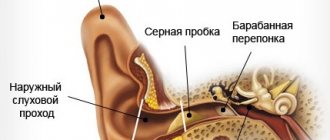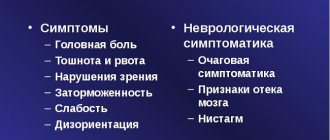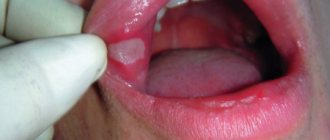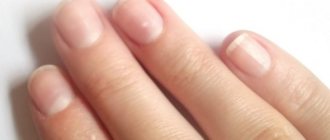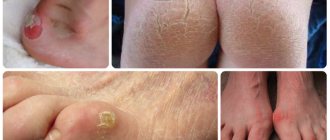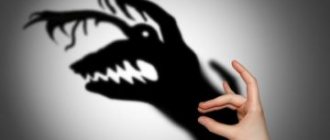Ringing in the ears is an unpleasant phenomenon. When it occurs temporarily and does not affect the usual rhythm of a person’s life, then there is no reason to worry. The cause of intermittent ringing may be overwork, stress, lack of sleep, physical activity, overexertion, or attending concerts with loud music. But what to do when there is constant ringing, when extraneous sounds in your head prevent you from falling asleep or concentrating on your usual activities or work?
In medicine, a similar condition when there is a ringing in the ear is called tinnitus.
Patients note that not only ringing, but buzzing, whistling, gurgling, and clicking can be heard in the ear. These sounds can occur in one ear or in both ears at once, and can be of different volumes or tones.
Is it worth tolerating this condition, and when should you see a doctor? Symptoms, causes and treatment of ringing in the ear is the topic of our new article.
Why does my ears and head ring?
The human ear has an eardrum inside that blocks the passage to the inside of this organ. When air vibrations occur, it begins to move. This causes the adjacent bones to move as well. Then the vibrations pass into a tube with liquid (snail). When moving, it creates waves that cause microcells with hairs to pulsate. They are the ones who transmit nerve impulses to the brain. But microcells are very fragile and they are under constant tension. Therefore, any loud music, shock, injury or illness can cause noise, humming or ringing in the ears.
Types and degrees of ringing
There are several classifications of tinnitus. According to one of them, it is divided into objective and subjective. Objective - these are sounds that really exist, and they are also heard by the ENT doctor when examining a person. This type of ringing is rare. Subjective ringing is perceived only by the patient.
Noise can be vibrational, which is created by elements of the hearing organ, and non-vibrational, caused by irritation of nerve endings.
According to the nature of the ringing, the sound can be monotonous (whistle, buzz) or complex (music, ringing bell, etc.).
There are four degrees of tinnitus based on intensity. In the first degree of tinnitus, the sounds are unobtrusive and do not affect a person’s usual lifestyle. In the second degree, sounds are characterized by sufficient constancy and intensify at night. The third degree greatly reduces the quality of life: noises are heard constantly, the patient becomes irritable, and performance decreases. The fourth degree is the most dangerous. A person completely loses his ability to work due to an obsessive symptom.
During a consultation with an otorhinolaryngologist, it is necessary to describe the nature of the ringing in the ear as accurately as possible in order to establish the cause of the disease as accurately as possible and prescribe the correct treatment regimen.
Types of tinnitus
Why is there a ringing in my ears, but the doctor can’t hear it? Tinnitus can be of two types: objective and subjective. Frequent tinnitus usually results from certain abnormalities in the body.
Objective noise appears rarely. It can be heard not only by the patient, but also by the doctor using a phonendoscope. Why do my ears often ring? The reasons may be different:
- contractions of the muscles of the pharynx;
- dilation and constriction of blood vessels;
- disturbance in the area of the temporal and mandibular joints;
- pressure surges in the eardrums.
The doctor cannot hear the subjective noise. In this case, pathology of the patient’s inner or middle ear is possible. Some diseases and inflammations of the brain can also provoke such noise. Often ringing and humming are caused by Meniere's disease, acoustic neuritis, otitis media and otosclerosis, diabetes mellitus, and kidney disease.
Reasons for appearance
This disease appears due to the influence of the following causative factors:
- the presence of middle ear pathology in the body, which has not been completely cured;
- the occurrence of neuritis in the area of the auditory nerve;
- changes in hormonal function and production of certain hormones;
- inflammatory processes in the middle and inner ear;
- formation of sulfur plugs;
- penetration of foreign objects;
- hearing injury;
- wearing low-quality headphones, causing excessive stress on the organ;
- narrowing of the vascular elements of the head and neck;
- migraine;
- VSD and sudden surges in pressure;
- iron deficiency in the body;
- severe stress, overwork;
- intoxication and drug abuse.
In addition to noise, ringing can form, which is provoked by a number of causal factors:
- hypertensive disease of the heart muscle, the ringing is pulsating;
- osteochondrosis in the area of the cervical vertebrae: a metallic ringing is felt;
- TBI – the patient suffers from a feeling of squeaking, whistling;
- tumor processes, cancer - this condition causes a decrease and loss of hearing function.
What sensations may accompany tinnitus?
A person who has ringing in the ears sometimes experiences additional unpleasant sensations. Tinnitus may be accompanied by:
- increased temperature;
- vomiting and nausea;
- dizziness and headaches;
- pain and pressure in the ear;
- swelling and redness;
- discharge from the ears;
- general malaise;
- lethargy.
Possible complications
Noisy sensations in the ears are not normal, even if you had otitis media the day before. They only say that there is a serious pathology in the area of the ear apparatus or other system. So the appearance of any extraneous sounds should alert the patient and force him to seek help from a specialist. If the need for therapy is ignored, the following complications may occur:
- purulent otitis media;
- transition of the disease to the chronic stage;
- partial or complete hearing loss.
There is a possibility of some other complications that lead to more serious illnesses.
Diseases that cause tinnitus
Tinnitus may indicate the presence of a disease or the beginning of its onset. Often there is a ringing in the left ear, and only then the noise appears in the right or vice versa.
Diseases that can cause noise:
- Hypertension. Usually there is a ringing sound that accompanies the increase in pressure. In this case, it is better to measure it. If you have high blood pressure, treatment of the cardiovascular system is necessary. If, along with tinnitus, a headache or “floaters” appear before the eyes, this indicates the likelihood of a hypertensive crisis. In this case, you need to call an ambulance to avoid a stroke.
- Migraine. This disease is usually accompanied not only by tinnitus, but also by headache. At the same time, it only covers half of the head.
- Atherosclerosis. The appearance of tinnitus begins due to the loss of elasticity of blood vessels due to age-related changes in the body. May be accompanied by slight pulsation. Often noise occurs due to spasm of the auditory muscles. But only a neurologist can find out the exact cause and prescribe treatment.
- Otitis. Noise and ringing in the ears begins due to the inflammatory process. Often accompanied by pain when touching the ear, hearing loss, and purulent discharge. Inflammation can also begin after water gets into the ear canal.
- Otosclerosis. This disease is chronic when the bone tissue between the middle and inner ear grows. First it rings in the left ear (or right), then in the other. Most often the disease is observed in women. If it is not treated in time, hearing loss may occur.
- Multiple sclerosis. This is a disease of the nervous system. Accompanied by tinnitus, dizziness, “goose bumps”, urinary incontinence and impaired coordination of movements.
- Neuroma. This is the name of a tumor that forms on the auditory nerve. At first it develops without symptoms. When the tumor begins to put pressure on the nerve endings, pain appears, and then there is noise and ringing in the ears. Hearing acuity decreases, dizziness, loss of coordination and a feeling of “goosebumps” appear.
Prevention
Listening to loud music or intense noise for a long time can cause hearing loss and tinnitus.
To minimize or prevent extraneous sounds occurring in the ears, it is necessary to follow a number of fundamental rules and recommendations:
- correctly carry out personal hygiene procedures (washing and cleaning the ears, removing wax from them);
- if the first signs of inflammation appear, immediately contact a medical specialist to avoid the pathology becoming purulent;
- follow all doctor’s recommendations regarding the treatment of this disease;
- adhere to general rules when diving, avoid overload during an airplane flight, and prevent excessive pressure changes;
- if you like to listen to music, you should choose calm compositions and do it in quiet mode;
- If you perform work duties in noisy industries, you must use personal noise protection equipment.
These phenomena act only as symptoms indicating serious pathologies in the body. If you diagnose the disease at an early stage, you can achieve tremendous results in getting rid of it once and for all.
Other causes of tinnitus
Why does my ears ring? The causes of noise, in addition to those listed above, may be different. For example, tinnitus occurs when a foreign body enters the ear canal. Often noise appears during stress or poisoning. Often, ringing in the ears occurs due to a sudden change in weather or a difference in atmospheric pressure. Ringing can also occur when engaging in certain sports (parachute jumping, diving), as well as when flying in airliners.
Often a person's ears ring from increased noise or loud sounds in the room. This sensation may occur due to music (attending concerts, discos and clubs) or sharp pops near the ear. In this case, the eardrums simply do not have time to adjust to a different rhythm, and the person begins to ring. If loud sounds are constant, it can even lead to deafness.
Noise effects in the ears can even occur from drinking coffee, aspirin, energy drinks and nicotine. These are pathogens that have a great influence on the hair cells of the ear, which are responsible for sending impulses to the brain.
Ear inflammation and congestion
Inflammation in the nasopharynx also affects the functions of the hearing aid; even a runny nose can cause congestion. This process is also influenced by:
- damage to the auditory nerve;
- deviated nasal septum;
- the presence of adenoids and polyps;
- inflammation in the maxillary sinuses.
If we talk about hearing impairment, otitis media, head trauma, and hypertension affect its quality. The noise may appear in one or both ears. Meniere's syndrome, as the disease is called, is still being studied. Many people do not pay attention to this symptom, but it is not always worth ignoring it. It has been noticed that it becomes more pronounced with certain disruptions in the body, for example, with:
- allergies;
- pressure surges;
- hormonal abnormalities;
- vascular dystonia;
- intoxication.
How to get rid of noise and ringing in the ears
Treatment of tinnitus is carried out with the help of medications that reduce vascular permeability and improve blood microcirculation in the inner ear. Doctors often prescribe Vasobral, which prevents the formation of blood clots. Thanks to this drug, resistance to oxygen deficiency increases in brain tissue. Also used:
- a nicotinic acid;
- medications containing iodine;
- vitamin complexes;
- aloe extract.
Treatment of noise effects in the ears must begin with eliminating the cause. For example, with osteochondrosis, neck massage and exercises that make the muscles of the cervical spine work are great. They are performed daily for several months.
Tinnitus can be easily treated with traditional methods:
- Using ammonia. It dissolves in boiled water in the proportion of 1 tbsp. for 200 ml. Gauze is soaked in the solution and applied to the ears. Compresses should be performed within a week.
- With the help of honey. Viburnum berries are ground with it. The resulting mixture is wrapped in gauze and the prepared tampon is inserted into the ear overnight. If this procedure is carried out daily for two weeks, the tinnitus will disappear and your hearing will become sharper.
- For lemon balm tincture, which not only relieves tinnitus, but also restores hearing, take part of the herb and mix it with vodka in a ratio of 1:3. Infuse for a week in a dark place. Then filter and drop 4 drops into the ears. The infusion should be warm. After this procedure, cotton swabs are inserted into the ears, and the head is tied with a woolen scarf. This should be repeated until the noise effects disappear completely.
- A decoction of medicinal plants is made from currant leaves, lilac flowers and black elderberry. Two tablespoons of herbal mixture are poured with a couple of glasses of water and boiled in a water bath for 20 minutes. At the same time, the mixture is continuously stirred. Afterwards, the broth is infused for another 15 minutes and filtered. Take it until complete recovery three times a day, 70 ml 15 minutes before meals.
- Rice water gives a good effect in treatment. To prepare, three tablespoons of rice are poured into two glasses of water and left overnight. In the morning, the product is filtered and clean water is added in a 1:1 ratio with the swollen cereal. Boil for 3 minutes, removing any foam that forms. Add 3 cloves of garlic to the finished mixture. The finished mass is mixed and eaten hot. By adding this mixture to your diet every day, tinnitus will disappear.
It must be remembered that it is better to carry out treatment after consulting a doctor in order to avoid problems in the future. In some diseases, seemingly harmless herbs and products can cause a back reaction or allergy.
Treatment options
Therapy is selected depending on the disorder that caused the discomfort. To begin with, it is important to conduct a comprehensive diagnosis, including an in-person examination with an otoscope, audiometry, and vascular examination.
If your ear is blocked after shooting from a machine gun or other weapon, first of all, you should suspect three possible diagnoses:
| Reason for the ringing | Therapeutic approach |
| Sulfur plug | Changes in pressure in the inner ear under the influence of loud sounds can move the wax plug and block the ear canal. Excess sulfur can be removed at home using hydrogen peroxide or pharmacy cleansing drops. It is most effective to carry out the rinsing procedure in the ENT office. |
| Damage to the eardrum | Minor perforation of the membrane heals on its own. The large hole is surgically closed in a procedure called myringoplasty. |
| Acoustic trauma | Vasoconstrictor and antimicrobial ear drops, physiotherapy, vitamins, and a gentle hearing regimen are prescribed. The chronic progressive form in combination with hearing loss requires the use of a hearing aid or cochlear implant. |
Correct and timely treatment of hearing problems after a shooting in most cases helps to fully restore hearing functions.
Diagnostics
Otoscopy allows you to determine the causes of diseases of the ear canal.
Tone threshold tonometry allows you to record an audiogram and determine the hearing threshold. A reduced threshold is observed with inflammation of the middle ear, labyrinthitis, and damage to the auditory nerve. An increased hearing threshold occurs in diseases of the external ear, Meniere's disease, eardrum injury, labyrinthitis, and otosclerosis.
To make a diagnosis, auscultation of the temporal lobe of the skull with a phonendoscope can also be performed. A pulsating noise confirms vascular pathologies, and a clicking noise confirms damage to the soft palate and parts of the middle ear.
Additional and very informative diagnostic methods are:
- radiography of the bone skeleton (focal darkening with mastoiditis, deformation of discs and cervical vertebrae with osteochondrosis);
- checking the patency of the auditory tube (detection of eustachitis), angiography;
- study of vestibular reactions.
Preventive measures
Preventive measures include tips and recommendations that will help prevent the development of inflammation inside the ear and the development of the pathological process of blood vessels. Let's take a closer look:
- Eat right. The diet should be based on vegetables, fruits, cereals and meat. You should not eat foods with questionable ingredients;
- Beware of hypothermia and dress appropriately for the weather;
- After water procedures, do not go outside;
- Take any medications only as prescribed by a doctor;
- At the first alarming symptoms, go to the hospital.
Symptoms of acoustic ear injury: ringing and squeaking in the ears, treatment of the analyzer
Acoustic ear injury is a common damage to the human hearing system that occurs during long-term or short-term exposure to strong sounds. According to the ICD-10 classification, this disease belongs to the subsection: “Noise effects of the inner ear” (H83.3), which includes the injury itself and hearing loss caused by noise.
Acoustic ear injury
- Chronic, or in other words professional, occurs with constant exposure to sound above 70 dB together with vibration. Such waves provoke the development of irreversible processes in the labyrinth, which are almost impossible to stop.
- Acute is accompanied by severe hemorrhage and can change the cells in the labyrinth. A single exposure to a loud sound can cause pain and even mechanical damage.
Explosions from mines or other projectiles can cause blast injury. It is characterized by the occurrence of pressure inside the ear, which leads to rupture of the eardrum. With such exposure, a person begins to get lost in space and may lose consciousness.
Causes
The main cause of such hearing aid injury is work associated with constant exposure to very loud noise. It occurs due to prolonged exposure to sounds of 1000-6000 GHz. Mechanical damage to the membrane and membrane can occur in people:
- working with noisy equipment;
- living in places where loud noises are regularly heard;
- visiting shooting ranges;
- those who neglect protection, for example, do not use earplugs.
Hazardous professions in this area include: boilermakers, weavers, nailers. People whose work involves the use of small arms can also suffer chronic injury.
Noise source table
Symptoms and diagnostic methods
The main symptom of acoustic trauma is complete or partial hearing loss. When receiving an acute injury, sharp pain occurs, with the appearance of hearing loss. It can appear on one or both sides.
In this condition, the patient does not hear surrounding sounds. You may feel dizzy. An endoscopy can look for tears in the eardrum.
Tinnitus is a symptom that signals the onset of chronic acoustic trauma. It can be expressed by buzzing, ringing or other unpleasant incessant sound.
Further hearing loss may develop. At the first sign or suspicion of injury, you should immediately contact a medical facility.
To diagnose acoustic trauma, the doctor will conduct a survey to find out what noise the patient was exposed to. Special equipment is also used for audiometry.
When the ear is exposed to sounds of varying volumes and frequencies, it is determined which of them the patient hears and which ones he does not. This diagnostic method allows you to determine the severity and neglect of the disease.
Treatment
If you receive an acute acoustic injury, treatment may not be required. After short-term exposure to strong sound, almost all symptoms that appear can be reversible. The same cannot be said for chronic injury. It requires mandatory treatment.
In addition
If, in addition to tinnitus, osteochondrosis bothers you with pain, the Injoint gel patch will help you cope with it. The product is applied to clean skin and hardens on it, turning into an invisible film.
The effect of the gel is due to its natural composition - snake venom quickly anesthetizes the affected area, bee venom stops the development of inflammation, and deer antlers strengthen cartilage tissue, stopping their destruction.
I hope my article was able to help you. I would be grateful if you recommend it to your friends on social networks and subscribe to updates - I promise a lot of useful information. See you again!
Sincerely, Vladimir Litvinenko!
A slight noise in the ear after purulent otitis media, how long will it last and should it exist at all?
Answers:
CASSIOPEIA
When you first experience tinnitus or if its character changes, you should immediately consult a doctor. ***************************************** In order to accurately establish the reasons occurrence of noise, DIAGNOSTICS BY AUDIOMETRICS is carried out. Such a study is carried out using electronic equipment of the frequency spectrum and noise intensity. Tinnitus is not a disease, but only a symptom of a disease; treatment can be prescribed in accordance with the results of a medical examination. In some cases, short-term use of over-the-counter anti-inflammatory drugs will be sufficient, but in more complex cases, complex surgery may be required. The effectiveness of treatment largely depends on the timing of the patient’s seeking medical help. When contacting at an early stage of the development of the disease, in most cases, to achieve a positive effect, it is enough to conduct a course of acupuncture in combination with other reflexive treatment methods.
Galina Kitcha
if there is noise. This means that the otitis media has not gone away yet. Unless you have hypertension.
Anthony Houskey
Question: After otitis media, tinnitus (ringing) does not go away (for 2 months already), I went to the otolaryngolia center, there is no exact diagnosis, they say residual effects, something with the pressure in the ear, they passed some currents, there is no improvement (no low frequencies). Are there any treatments? Irina
Answer: Hello, Irina! There are several methods for treating ear noise; it all depends on many factors, which you do not report in this letter; it is also not indicated what examinations were performed on you and their results. Sign up for a consultation with us, we will try to help you!
pppp pppp
Go to the doctor.
ethnoscience
Traditional methods of treatment do not have a 100% positive effect; before starting any procedures, consult an otolaryngologist. Traditional healers recommend:
- instill yarrow juice three times a day, two drops;
- drink a decoction of dill (40 grams per half liter of boiling water), cranberry and carrot juice;
- use tampons made of oil, calendula and peroxide;
- Mix grated raw potatoes with honey, wrap in cloth and place in the ear canal.
Stages of manifestation
Tinnitus after otitis may be:
- in the mild stage - the appearance of extraneous sounds in the patient is not permanent, these symptoms do not have any effect on performance or rest;
- in the moderate stage - noise does not bother you during the day, but sometimes prevents you from sleeping at night;
- in the middle stage – the patient is distracted while doing work, his sleep is disturbed;
- in the severe stage - complete loss of ability to work, the patient cannot rest, noise causes irritation, anger, apathy, and depression.
Prevention of tinnitus
By following preventive measures, you can avoid ear discomfort in advance. To do this, it is recommended to avoid very noisy places - nightclubs, concerts, airports, and so on. If this is not possible, then use special earplugs that will help isolate you at least a little from the noise.
During water procedures, you should avoid getting water into the ears. At home, all you need to do is take a shower carefully, and in swimming pools, use waterproof earplugs.
Treatment
If there is noise in the right ear, how to treat it? First, the cause is determined. Without identifying the disease or conditions that led to discomfort, it will not be possible to cure such manifestations. An integrated approach consists of using medications that relieve anxiety, restore the condition of organs, and eliminate inflammation.
Pulsatile noise in the right ear or another type of noise is treated with different remedies based on the main ailment. Doctors usually prescribe:
- Antibiotics. Their use is associated with inflammation or infection that is localized in the ear. Antihistamines are also used to relieve swelling and reduce exudative discharge from the ear. Effective ones include Fenkarol, Hydroxyzine, Promethazine.
- Cerebral circulation stimulants. They are prescribed to normalize blood flow. The best products are Betagistin, Cinnarizine, and Cavinton.
- Nootropic medications. Their use will help achieve positive dynamics in combating noise manifestations. Mexidol, Cortexin, and Phezam are usually prescribed.
- Vitamin complexes. They strengthen vascular walls and restore nerve endings.
You should not choose medications on your own; this can lead to side effects, lack of effect and complications. These medications can only be taken if prescribed by a doctor. Whatever drug is prescribed, the dosage and duration of treatment must be observed.
Traditional treatment
The first thing you need to do to eliminate phantom sounds in your ears is to seek help from a doctor. Only a specialized specialist will determine the cause of such unpleasant symptoms and help eliminate them by prescribing the correct treatment.
As for phantom sounds that are not caused by ear pathologies, they disappear after the underlying disease that caused them is eliminated.
Regarding tinnitus that appears during otitis media or in the recovery period, the cause of its occurrence is immediately clarified. If phantom sounds after an inflammatory process are caused only by a violation of the elasticity of the eardrum, this condition is simply observed; there is no need to combat the noise with medication.
Cracking and a feeling of stuffiness usually go away 2-3 weeks after otitis media without any intervention. At the discretion of the attending physician, in some cases anti-inflammatory drugs used at the local level are prescribed. They accelerate regenerative processes on the eardrum, thereby quickly getting rid of unpleasant ear noise.
If during the examination the doctor discovers that the inflammatory process in the ear continues or has resumed, treatment will be prescribed according to a typical scheme for otitis:
- vasoconstrictor nasal drops will help relieve swelling from the inflamed tissues of the nasopharynx and partially the Eustachian tube, which will allow the exudate to drain better;
- washing with an antiseptic eliminates pathogenic microorganisms and prevents their reproduction;
- anti-inflammatory drugs reduce the activity of the pathological process, remove swelling;
- antibiotics are prescribed only by a doctor in the presence of a bacterial infection; incorrect use of these drugs will aggravate the situation.
To reduce symptoms, it is recommended to take systemic B vitamins, as well as the minerals zinc and copper. To eliminate concomitant dizziness, drugs containing betagestin are prescribed. The sooner the pathology is identified, the easier it will be to get rid of it.

